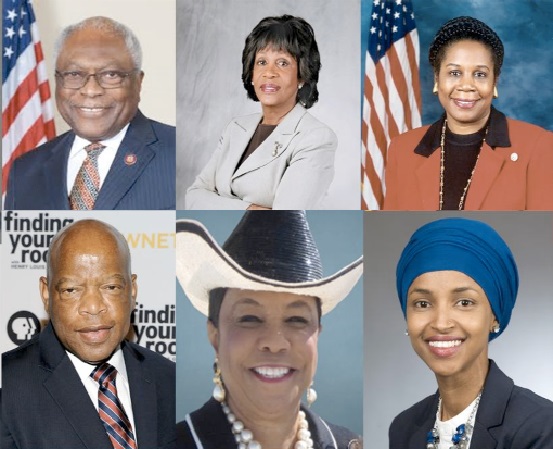
‘Beyond the return’ initiative
It’s been said that to control people you must first control what they think about themselves and how they regard their own history and culture.
Once an oppressor succeeds in making you despise yourself and your history, they need no prison walls to chain you in perpetual bondage.
The caution against mental slavery, I believe, was the essence of Bob Marley’s classic composition “The Redemption Song”.
Mental slavery
That concern has been a recurring worry ever since the first African slaves landed in Jamestown, Virginia in 1619 (about 400 years ago).
Dr Edward Wilmot Blyden – a noted West Indian Scholar and backer of West Africa – observed in 1881 that “the mind of the intelligent Negro child revolts against the descriptions of the Negro given in elementary school books, geographies, travels, histories”.
Blyden noted that people of African descent “having embraced or at least assented to those falsehoods about himself [thinks] that his only hope of rising in the scale of respectable manhood is to strive for what is most unlike himself and most alien to his peculiar tastes.”
Hosted on The View by Whoopi Goldberg, it was enlightening to hear Boris Kodjoe reflect: “It is really amazing when you get the chance to reconnect to your roots because you realize you are not descendants of slaves, you are descendants of enslaved Africans, which is a big difference.”
In supporting that claim, Kodjoe noted, “We are descendants of survivors, so understanding that helps to reclaim your cultural identity which is so important, especially us African Americans. And when you understand where you came from you have a better idea of where you are going. It is really transformational.”

US Congressional Black Caucus visit Ghana
The U.S. congressional black caucus
The African-American spiritual trek back to Africa continued with the visit of Rev Dr Martin Luther King for the celebration of Ghana’s independence, in 1957. As noted in last week’s column, “in the heart of Accra lie the tombs of W. E. B. Du Bois (1868 – 1963), a great African-American civil rights leader, and his dear wife, Shirley. Du Bois moved to Ghana in 1961, under the patronage of the Osagyefo Kwame Nkrumah until his death in 1963.”
This time around, the presence of the congressional black caucus continues to affirm the necessity for the spiritual connection: Majority Whip, James Clyburn of South Carolina; House Finance Committee Chairwoman, Maxine Waters of California; Congresswoman, Frederica Wilson of Florida; the civil rights icon, John Lewis of Georgia; Congresswoman, Sheila Jackson Lee of Texas, and Somali-born Congresswoman Ilhan Abdullahi Omar of Minnesota.
Initiative for collaboration, trade and investment
From Ecclesiastes 4:9-10, we see that “Two are better than one … For if they fall, the one will lift up his fellow; but woe to him that is alone when he falls; for he has not another to help him up”.
The purpose of President Akufo-Addo’s Beyond the Return” initiative, then, was to collaborate with Africans, persons of African descent and all well-wishers and lovers of freedom to strengthen their collective commitment to ensure that the blots in Africa’s history - such as the Trans-Atlantic Slave Trade and slavery —never recurred.
He noted, “As we begin the new initiative of ‘Beyond the Return’, which will entail that we engage in mutually beneficial trade, investment and cultural cooperation with the African diaspora, I urge all Ghanaians to demonstrate this same level of excitement and ommitment that characterised the Year of Return and help make that too an enduring success.”
The President expressed confidence that Ghanaians could imbibe a deep consciousness and understanding of the goals and history of African peoples to ensure that the 21st century was, indeed, the African century; the century of black people the world over.
“Ambassador” Boris Kodjoe
A cultural ambassador by default, Kodjoe said, “I have been (to Ghana) many times now, my father is from Ghana so I have been as a boy, I took my children, and I took my wife Nicole. Every time you go it’s a visual; it is such an emotional experience because you feel the spirit of those who were in these dungeons and who went through all these atrocities that we know about.”
He was disturbed that “the rest of the world, especially the United States, doesn’t get a positive visual representation about Africa right; all we hear about here, and what we associate Africa with, are famine, war, diseased children, mass exodus to Europe, due to decades of one-dimensional media coverage, and we wanted to change that narrative.”
He used “The Year of Return, 2019” to show people “the vibrancy, the diversity of Africa, the beautiful people, the food, the music, the nightlife, the historic sites, so we brought a 100 people there, our friends, to experience Accra, Ghana, to go to the slave castles, to have parties on the beach, to go out at night, to mingle, to collaborate with people, to have that exchange that is so necessary.”
Sharing the feelings of the other African-American celebrities on the Ghana visit he said, “It was a profoundly transformative experience for every single person that went, so we realised that we need to make it available to everybody: there are 400 million people of African decent living outside of the continent and every single person needs to go to Africa to experience that.” Amen!
Email:
Website: www.anishaffar.com
